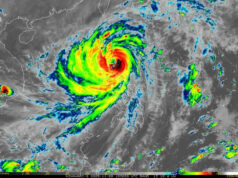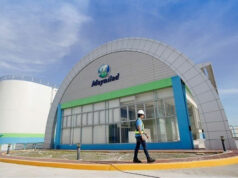THE CONTINUED surge in coronavirus infections will be a major barrier to economic recovery in the Philippines as consumer confidence remains low, Nomura Global Markets Research said.
“This will keep households and businesses cautious even if no lockdown is reinstated,” it said in a note on Friday.
Restriction measures have been eased in Metro Manila and some surrounding provinces last week after two weeks under modified enhanced community quarantine in response to a call from the medical community for a “timeout” to slow down the rise in infections.
The Philippines and Indonesia are still struggling to contain the virus. as compared to Malaysia and Thailand which have already flattened the curve, the report noted.
“We believe this not only reflects higher testing capacity but also higher local transmission rates, consistent with the uptrend in positivity rates since June,” Nomura said.
“The prolonged local outbreak remains a major risk to the recovery, especially because economic centers are still hotspots,” it added.
Nomura earlier this month further revised its gross domestic product (GDP) forecast for the Philippines to -6.6%, worse than the 4.8% contraction it expected earlier.
Economic managers sees 2020 GDP shrinking by 4.5-6.6% this year before bouncing back to 6.5-7.5% growth in 2021.
Nomura said consumption, which makes up 70% of the economy, will bear a larger brunt from the rising unemployment and falling remittances.
SOFTER DECLINE
Meanwhile, a softer decline in the last two quarters of the year is expected following the easing of quarantine rules but a double-digit drop is still possible this quarter, former National Economic and Development Authority (NEDA) Secretary Cielito F. Habito said.
Mr. Habito told a Shareholders’ Association of the Philippines’ (SharePHIL) forum on Friday that they forecast GDP to shrink by 11.8% in the third quarter, better than the 16.5% drop in the second quarter, based on estimates of the Ateneo de Manila University where he is currently a professor.
He added that they expect fourth-quarter GDP to shrink by just 2.8% to bring its full-year forecast to an eight percent contraction.
These are against the actual 6.3% and 6.7% growth rates recorded in the third and fourth quarters of 2019.
Meanwhile, he expects the economy to rebound and post a 5.1% growth next year.
Despite eased quarantine rules in the second half, physical distancing protocols remain as the government looks to curb the spread of the virus under the new normal, while businesses are still expected to scale down their operations and others may even close shop, he said.
Mr. Habito said stimulus packages should be more focused on the “quality of spending, rather than quantity” as the country gears towards recovery. He said money should go to investments that have a great expenditure multiplier effect on the economy.
Lawmakers recently approved and ratified the Bayanihan To Recover As One Act or Bayanihan 2 that provides P165 billion in new spending for programs boosting the health systems and pump-priming the economy.
Mr. Habito also stressed the need to focus on the agriculture sector and to maximize the boost it can provide to the economy.
He said the sector, which has been considered a laggard in the past, “defied the lockdown” after posting a 1.6% growth in the second quarter amid the broad contraction in other sectors of the economy.
“That agriculture saved the economy from even worse decline reinforces the long-held view that we must really look to this sector as the economy’s ultimate backbone, COVID-19 or no COVID-19,” Mr. Habito said. — L.W.T. Noble and B.M. Laforga



